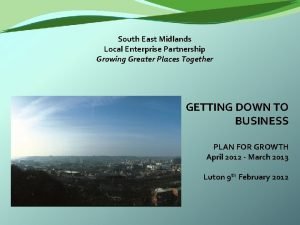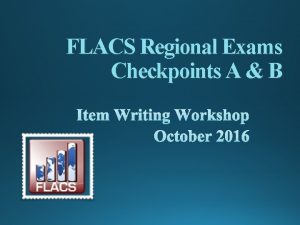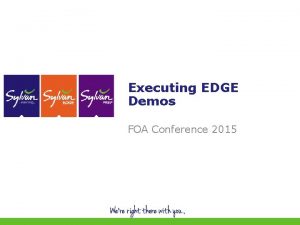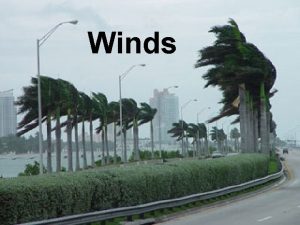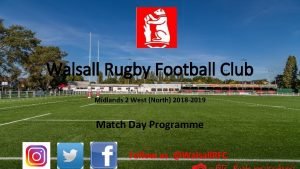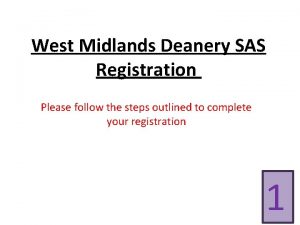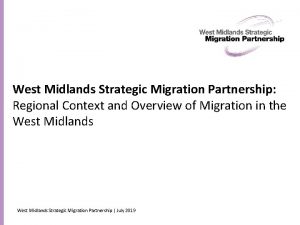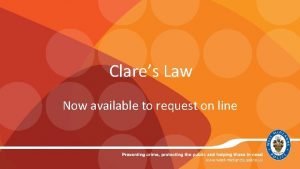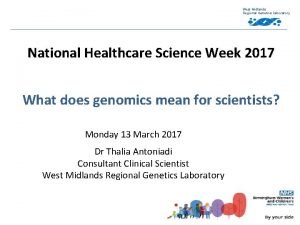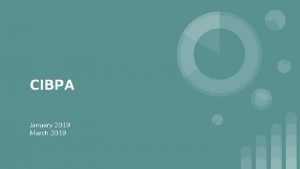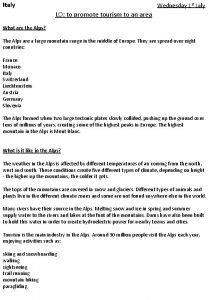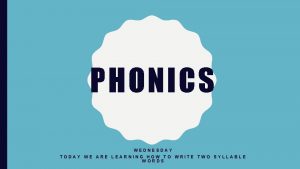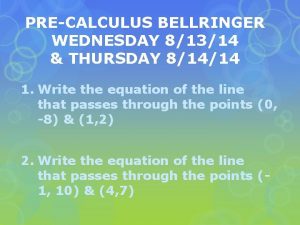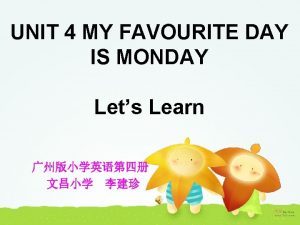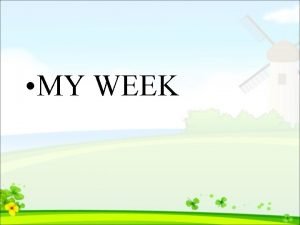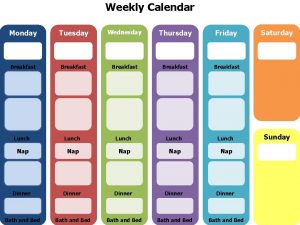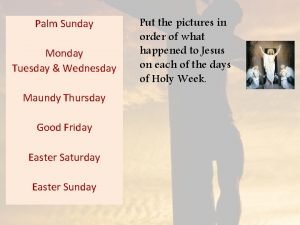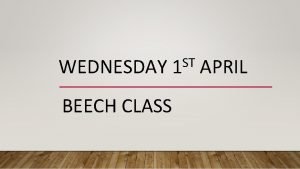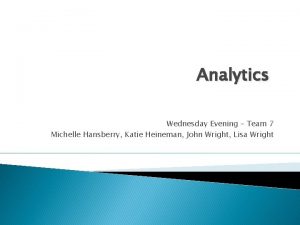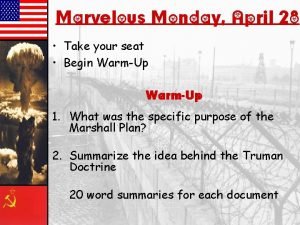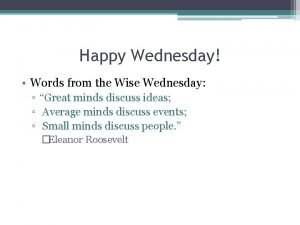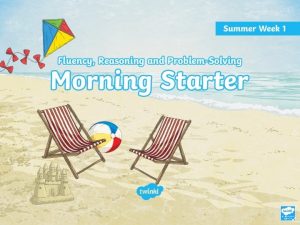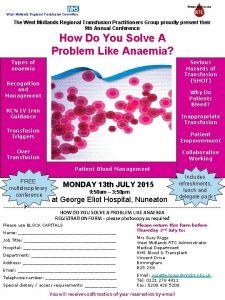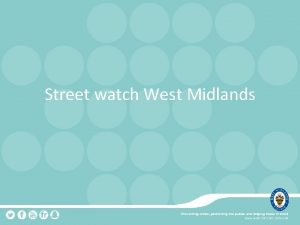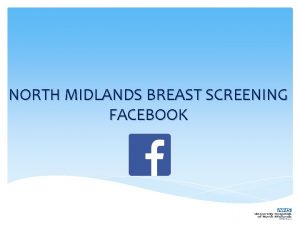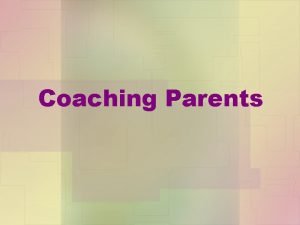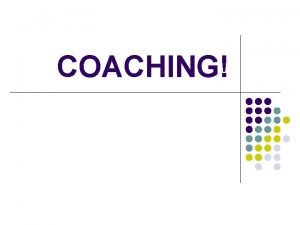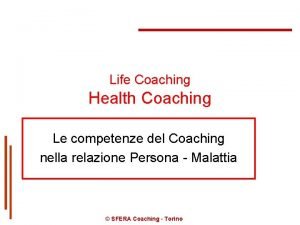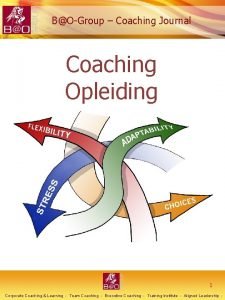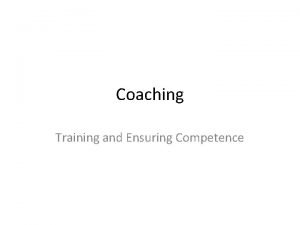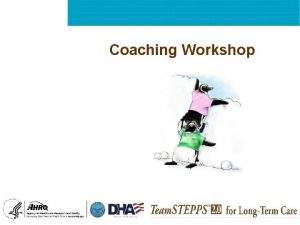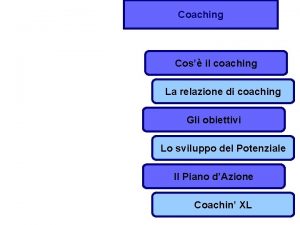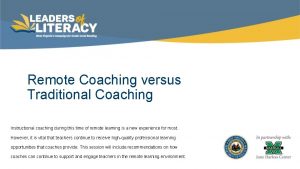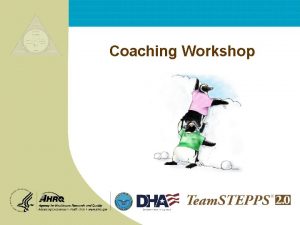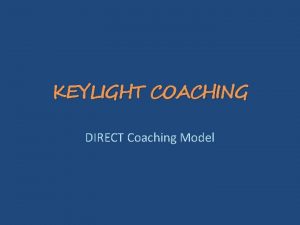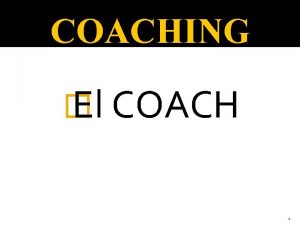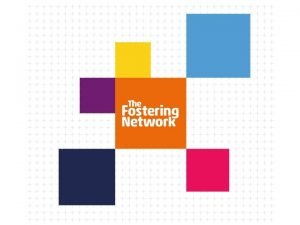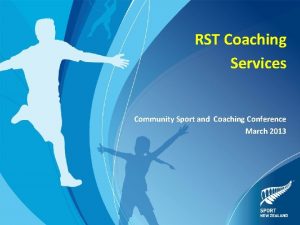EAST MIDLANDS COACHING CONFERENCE 2015 Wednesday 3 June






































- Slides: 38

EAST MIDLANDS COACHING CONFERENCE 2015 Wednesday 3 June 2015 #EMCoaching

Christine Fisher, Conference Chair North West Leicestershire District Council

What is your well-formed outcome for today? Alison Kane

A Good Start 4

Alison Kane l External coach – EMCN network l Own executive, leadership & management coaching business l ICF professional credentialled coach (PCC) l Ten + years coaching experience 5

6

Well Formed Outcome l What do you want specifically to get from today? l State the outcome positively. l How will you know when you have got it? l What will you see (Visual)? l What will you hear? (Auditory) l What will you feel? (Kinaesthetic) 7

Our Coaching Challenges 8

In pairs (7 mins each way): l Most significant 1 or 2 coaching challenges for you right now (if relevant) – brief bullet points. l What is your well formed outcome for today? (state positively) l. I see l I feel l I hear l Facilitator captures feedback 9

10

Workshops Workshop 1 - Boundaries and Buttons, Kate Pinder (Ferneley Room) Workshop 2 - Coaching for Resilience – Models, approaches, and techniques to increase personal resilience, Elaine Akester (Suite 2) Workshop 3 - Systemic Coaching - Mapping Techniques for Coaches, Alison Maxwell (Suite 1)

Systemic Coaching - Mapping Techniques for Coaches Alison Maxwell

Workshops Workshop 1 - Boundaries and Buttons, Kate Pinder (Ferneley Room) Workshop 2 - Coaching for Resilience – Models, approaches, and techniques to increase personal resilience, Elaine Akester (Suite 2) Workshop 3 - Systemic Coaching - Mapping Techniques for Coaches, Alison Maxwell (Suite 1)

Lunch

Using Intuition and Neuroscience in Coaching Lis Merrick

EAST MIDLANDS COACHING CONFERENCE 2015 Using Intuition & Neuroscience in Coaching Lis Merrick 2 nd June 2015 3/8/2021 © Coach Mentoring Ltd 2015

Lis Merrick • Background in HR • Consultant specializing in mentoring & coaching • Visiting Fellow – Sheffield Business School UK • Board Member of ISMPE 3/8/2021 © Coach Mentoring Ltd 2015

This Keynote will explore • What is and how do we use, intuition in coaching? • Whether coaches need to understand how the brain works? • Practical tools to support your coaching 3/8/2021 © Coach Mentoring Ltd 2015

What is this all about? Brain formation and coaching Some background • Formed by genetic potential and by relationships • The Coach is managing the brain of the person they are coaching (within the contract) • The Coach facilitates change by getting the brain working with new pathways. 3/8/2021 • NLP • Gestalt • Transactional Analysis • Tim Gallwey – Inner Game • Latest findings in neuroscience © Coach Mentoring Ltd 2015

The Brain • Reptilian Brain • Mammalian Brain • Cognitive Brain 3/8/2021 © Coach Mentoring Ltd 2015

Brain – thinking & feeling • The brain as the organ of relationship (right hemisphere mostly focuses on the emotional system • Left hemisphere deals with facts and what is known 3/8/2021 © Coach Mentoring Ltd 2015

So what is a Coach? “An expert in facilitating self- directed neuroplasticity. ” Amy Brann 3/8/2021 © Coach Mentoring Ltd 2015

SO WHAT IS INTUITION? AND HOW DO YOU USE IT AS A COACH? Let’s discuss with a partner 3/8/2021 © Coach Mentoring Ltd 2015

Fast and Slow Thinking Fast Thinking Slow Thinking • An exquisite pattern detection mechanism • We can use our fast thinking system to predict the outcome • Until we learn the patterns we can expect, it is advisable to take the time and energy to think things through 3/8/2021 © Coach Mentoring Ltd 2015

Coaching Practice 1. Ask your client to reflect on some of their best decisions over the last year. 2. Which ones do they feel really good about? 3. In a ‘coaching way’ reverse engineer how they believe they made these decisions and look for any patterns. 4. Are they aware of any intuitive decision making component? How immediately right did this feel to them? 5. Do they need the logical arguments to stack up before they can commit to something? 6. Explore the value of emotions in the decision making process as well. 3/8/2021 © Coach Mentoring Ltd 2015

Habit Formation • “ ‘Neurons that fire together, wire together!’ Hebbian Theory 3/8/2021 • Habits – regular tendencies or practices • Often unconscious and automatic • Some useful, some not • Why is this important for coaches? © Coach Mentoring Ltd 2015

Coaching Practice 1. Invite your client to share with you a habit that they feel is holding them back/doing them a disservice in some way. 2. Once you understand this habit and its triggers and the negative effect it is having, move on to discuss what habit(s) would be supportive to them in reaching their desired goals 3. Identify small steps to create the new habit(s). 3/8/2021 © Coach Mentoring Ltd 2015

Goals A goal is a desired result Why are they so important in coaching? 3/8/2021 Attainment of goals relies on: • Goal maintenance • Performance monitoring • Response inhibition © Coach Mentoring Ltd 2015

Components to Goals • • • Deciding on the goal Thinking creatively Planning how you will achieve it Visualising the goal and the steps to reach it Paying attention to/being affected by relevant cues (conscious and unconscious) Exercising will power/self-control Helpful habits Monitoring progress and adapting Inhibiting internal distractions (emotions) Inhibiting external distractions Taking action 3/8/2021 © Coach Mentoring Ltd 2015

Coaching Practice Ask your client to describe a goal they are working towards, then support them by considering: • Readiness potential • Implementation intention • Keeping goals in mind externally • Keeping components separate: 1. 2. 3. 3/8/2021 Why you want to achieve it? What you are seeking to achieve? How will it be achieved? © Coach Mentoring Ltd 2015

Motivation • Involves the dopamine reward circuitry in the brain • We undertake activities that reward us and avoid punishment 3/8/2021 © Coach Mentoring Ltd 2015

Coaching Practice • Help your client to identify what already motivates them. This is likely to be causing a release of dopamine. • See if you can unpack any obvious links between what is driving them and what is important to them? • People generally respond well to: – Autonomy – Purpose – Mastery 3/8/2021 © Coach Mentoring Ltd 2015

FINAL QUESTIONS 3/8/2021 © Coach Mentoring Ltd 2015

LIS MERRICK Lismerrick@coachmentoring. co. uk www. coachmentoring. co. uk 3/8/2021 © Coach Mentoring Ltd 2015

Some Useful ’Stuff’ ‘Neuroscience for Coaches’ – Amy Brann’ ‘Neuropsychology for Coaches’ – Paul Brown and Virginia Brown ‘Coaching with Empathy’ – Anne Brockbank and Ian Mc. Gill 3/8/2021 • Patricia Riddell • David Rock © Coach Mentoring Ltd 2015

3/8/2021 © Coach Mentoring Ltd 2015

3/8/2021 © Coach Mentoring Ltd 2015

Conference close
 South east midlands lep
South east midlands lep Ashley dennison
Ashley dennison Rsc east midlands and humber
Rsc east midlands and humber June 2015 flacs exam answers
June 2015 flacs exam answers Led conference 2015
Led conference 2015 Edge conference 2015
Edge conference 2015 Insight 2015 conference
Insight 2015 conference Kalahari desert on africa map
Kalahari desert on africa map East is east and west is west
East is east and west is west East south east wind direction
East south east wind direction East coast game conference
East coast game conference Midlands regional transition team
Midlands regional transition team Veseyans rfc
Veseyans rfc West midlands deanery
West midlands deanery Health education west midlands
Health education west midlands Iosh midlands
Iosh midlands Wmsmp
Wmsmp Regional skills fora
Regional skills fora Clares law west midlands police
Clares law west midlands police West midlands regional genetics laboratory
West midlands regional genetics laboratory May 2019 ib grade boundaries
May 2019 ib grade boundaries Wednesday lo
Wednesday lo Happy wednesday
Happy wednesday Wednesday syllables
Wednesday syllables Thursday bellringer
Thursday bellringer My favourite day is saturday
My favourite day is saturday Tuesday wednesday saturday
Tuesday wednesday saturday Monday tuesday wednesday thursday friday calendar
Monday tuesday wednesday thursday friday calendar Sunday monday tuesday wednesday
Sunday monday tuesday wednesday Wednesday good morning
Wednesday good morning English class is wednesday
English class is wednesday Michelle hansberry
Michelle hansberry Wednesday at 6
Wednesday at 6 Thursday prayer
Thursday prayer Marvelous monday terrific tuesday wonderful wednesday
Marvelous monday terrific tuesday wonderful wednesday Skinny wednesday
Skinny wednesday Happy wednesday
Happy wednesday Wednesday evening prayer
Wednesday evening prayer Monday=621 tuesday=732 wednesday=933
Monday=621 tuesday=732 wednesday=933
